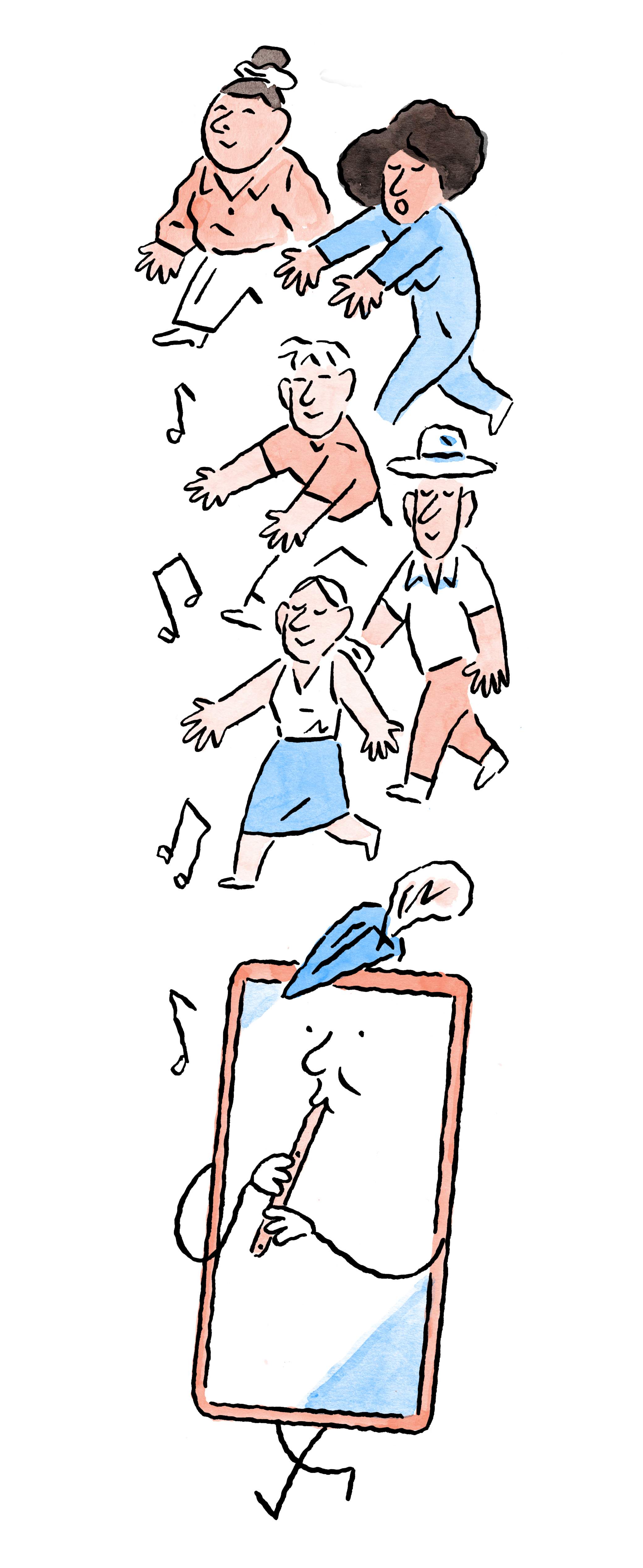The Agenda: Comment / Global
Uncharted territory
Eliane Glaser on why our dependence on satnavs is a step in the wrong direction.
I recently took a work trip to Sussex in southern England. I hadn’t had a chance to check where we were going and just hopped in my colleague’s car. She typed the address into her smartphone, slipped it into a holder on the dashboard and off we went. When I wasn’t following the blue dot on the screen, I was startled by the views. We traversed an exotic-looking heathland. A gothic church loomed over a mysterious hill town. Unexpectedly, I glimpsed the sea. Where were we? I felt as though I was in a foreign land.

This is not how I normally travel. I am one of the few remaining smartphone refuseniks; my phone is a brick. I use Google Maps but only before I set out, so that I can draw a route onto a scrap of paper. In the car, I consult the road atlas. When I’m out on my bike, I tap on the windows of cabs waiting at red lights. I ask bus drivers where to get off. These human interactions now feel very countercultural. But my brief period of Sussex disorientation is now how most people live all the time – unaware of where they are going and in which direction. I do sometimes get lost but I’m usually aware of the general lie of the land. I am mindful of my increasing eccentricity but I believe that not having a sense of where we are is profoundly disempowering. It means that we walk blindly down a dark corridor, guided only by technological corporations with dubious motives.
Several studies have shown that relying on “egocentric navigation” (or turn-by-turn instructions) rather than paper maps is eroding our navigational ability; it’s a “use it or lose it” skill. Indeed, we have our own gps system in our brains: researchers have identified triangular “grid cells” that map territory, rather like longitude and latitude co-ordinates. This is just one way in which we underestimate our own highly sophisticated cognitive capacities in favour of the shiny new technology at our fingertips. Satellite navigation is improving all the time and rarely lets us down. When it does, though, the consequences can feel catastrophic.

Researchers have found clear links between spatial awareness and memory. London taxi drivers who have memorised the city’s entire street plan (known as “The Knowledge”) acquire an enlarged hippocampus – the part of the brain associated with learning and memory. There is also evidence that orientation helps us to remember not just places but events. Neuroscientists believe that, remarkably, parts of our brain also give us the ability to imagine ourselves in, and plan for, the future. In June, scientists based in the UK and US discovered how the brain’s prefrontal cortex and the hippocampus work together to enable us to make decisions by envisaging potential outcomes.
Replacing paper maps with phones feels like progress but are we actually travelling backwards? If we give up our sense of direction, we forfeit agency and control. We might feel liberated but we lack the freedom to explore what lies between A and B. Worst of all, we lose context. That loss is part of a more general disorientation. Children no longer appear to be taught countries and capitals. My own kids are growing up without a clear sense of their place in the world. History for them is a series of unconnected events; music is a playlist of singles, detached from any discernible movement or era. Digital technology is rendering us both tethered and unmoored. We lose the big picture at our peril. —
Glaser is a writer, lecturer, radio producer, broadcaster and author whose books include ‘Elitism: A Progressive Defence’.


